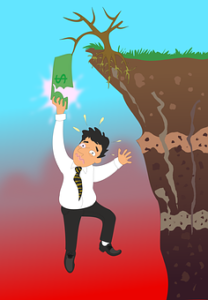Debt is a financial symphony, and often, we focus on the leading notes interest rates. However, beneath the surface, a harmony of hidden costs plays a role in the overall composition of our financial lives. Join us as we lift the curtain on the hidden expenses of debt, revealing a nuanced melody that extends beyond mere interest rates. When people think of debt, they usually consider the interest rate attached to their loans or credit card balances. Moreover, fast loan advance bad credit considerations may seem alluring at first, but they carry a significant amount of hidden expenses in the long run. While this is certainly a significant factor in determining the total cost of debt, other expenses must be considered.
The Backstage Players: Unmasking Hidden Fees
 Interest rates may take center stage, but hidden fees linger in the wings, waiting to make their entrance. Origination fees, late payment charges, and annual fees can quietly accumulate, adding an unexpected layer to the cost of borrowing. It’s like attending a concert and discovering extra charges for the ticket, the program, and even the encore. Understanding and anticipating these fees is crucial for a true financial overture.
Interest rates may take center stage, but hidden fees linger in the wings, waiting to make their entrance. Origination fees, late payment charges, and annual fees can quietly accumulate, adding an unexpected layer to the cost of borrowing. It’s like attending a concert and discovering extra charges for the ticket, the program, and even the encore. Understanding and anticipating these fees is crucial for a true financial overture.
The Ripple Effect: Impact on Credit Scores
The drama of debt has a lasting impact that resonates far beyond the immediate act. Late payments, defaults, or high credit utilization, all associated with debt, can create a ripple effect on credit scores. A diminished credit score may seem like a minor detail, but it can cast a long shadow on future financial endeavors. Like the encore that sets the tone for the next performance, credit scores influence the terms of future financial transactions.
Opportunity Cost: Sacrifices and Trade-offs
Debt introduces an opportunity cost. A hidden expense often overlooked. When resources are tied up in debt repayment, opportunities for investments, savings, or other financial goals may slip through our fingers. It’s the cost of missing out on the chance to dance to a different financial tune, a trade-off that limits our financial flexibility and hinders the pursuit of long-term aspirations.
Emotional Toll: The Unseen Consequences
As our financial symphony progresses, we encounter an unexpected interlude—the emotional and mental toll of debt. Beyond the numbers on a statement, financial stress, anxiety, and the burden of managing debt can take a toll on our well-being. The constant worry about repayments and the feeling of being tethered by debt contribute to a hidden cost that affects our emotional harmony.
In Conclusion
 As the final notes of our exploration echo, it’s clear that the true cost of debt extends beyond interest rates. Unveiling the hidden expenses allows us to compose a more balanced financial score. By anticipating and managing fees, being mindful of our credit health, understanding opportunity costs, and acknowledging the emotional toll, we can conduct a financial symphony that harmonizes with our long-term goals.…
As the final notes of our exploration echo, it’s clear that the true cost of debt extends beyond interest rates. Unveiling the hidden expenses allows us to compose a more balanced financial score. By anticipating and managing fees, being mindful of our credit health, understanding opportunity costs, and acknowledging the emotional toll, we can conduct a financial symphony that harmonizes with our long-term goals.…




 iral.” The payment into a trust deed is based on what an individual can afford the cost of essentials such as housing, energy costs, transport, and food have been taken into account. The person who is signing the trust deed, therefore, has a realistic budget upon which they can live without relying on the use of further credit.
iral.” The payment into a trust deed is based on what an individual can afford the cost of essentials such as housing, energy costs, transport, and food have been taken into account. The person who is signing the trust deed, therefore, has a realistic budget upon which they can live without relying on the use of further credit.